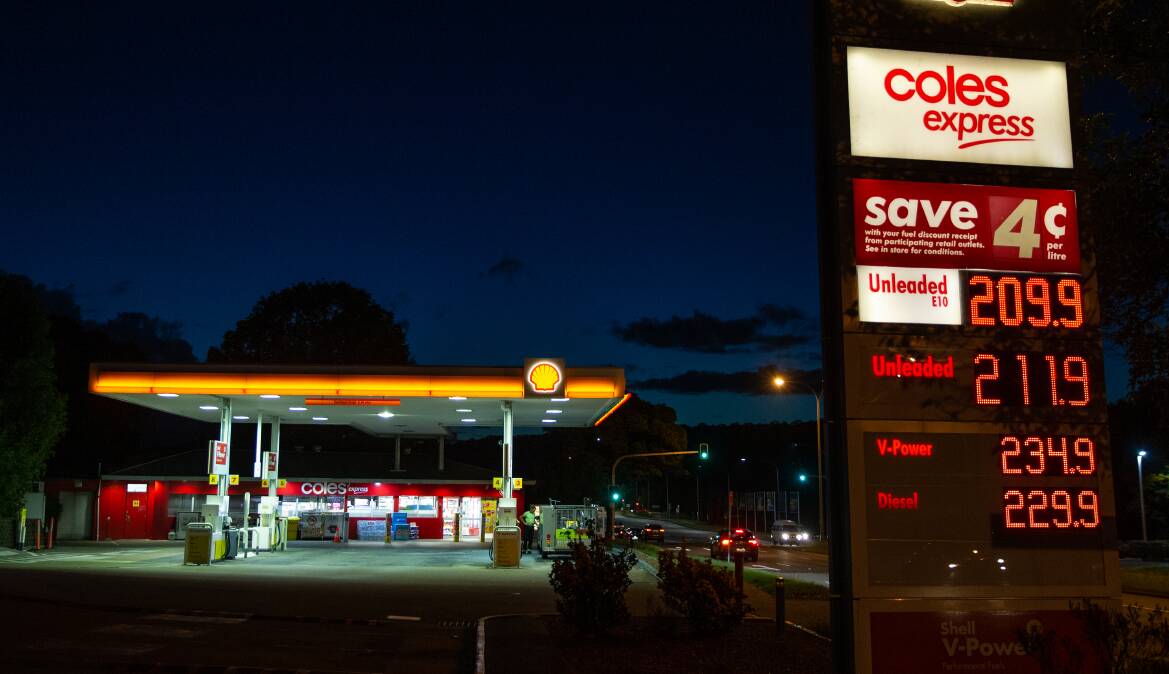
Each day, Chantel drives the 165 kilometres from North Rothbury to the upper-northern Sydney suburb of Galston for work, a commute that used to cost her roughly $150 a week.
Her weekly petrol expenses have risen to about $240 since she began her job early last year.
"I used to pay $50 for a tank of fuel. Now I pay about $80," the 23-year-old outdoor educator said.
Chantel makes around $89 a day from her traineeship, and, with her commute using three tanks of fuel a week, has less than $42 from her daily earnings left over.
The National Roads and Motorists' Association (NRMA) weekly fuel report revealed the average price for a litre of unleaded petrol last week was 209.25 cents. In September last year, the national lowest average per litre was 164 cents.
Just two of the Hunter's nine local government areas saw average unleaded petrol prices below $2 a litre last week: in the Upper Hunter, it was 196.9 cents, beat by 191.3 cents in Muswellbrook.
Maitland saw the highest prices, with the average price for an unleaded litre sitting at 220.5 cents. The average per litre in Newcastle was 206.6 cents and in Lake Macquarie it was 213.3 cents.
NRMA spokesperson Katrina Usman said the "difference between the highest and lowest price for regular unleaded fuel is 37 cents per litre" and encouraged drivers to use the NRMA app for cheaper deals.
It is at least the second time fuel has surged above $2 a litre this year: the King's Birthday long weekend saw critical pinches and cost per litre has been rising since July.
Chief executive of Australasian Convenience and Petroleum Marketers Association (ACAPMA) Mark McKenzie said "the perfect storm" had caused the hike.
Four factors - oil price, cost to refine the petrol, exchange rates and fuel excise - have given us the most turbulent fuel market in more than a year.
Refining premiums have "historically" added six to eight cents per litre to the cost of petrol.
"During the month of July, those prices surged. Petrol touched 22 cents per litre," Mr McKenzie said. "The principle reason for that is we had a couple of refineries that had unplanned outages in Malaysia, Indonesia and the United Arab Emirates."
The surge has "come [at the same time] as the oil price", which has climbed by about $13 a barrel since July 1. This adds about 13 cents per litre to the wholesale price of petrol.
For people like Chantel, the blow-out has meant living frugally and going without small luxuries. She considered herself one of the lucky ones, living at home without paying rent.
"I don't know how others are doing it," she said. "I've been [barely] going out to things like dinners with friends."
Chantel said she sometimes had less money to spend as a full-time trainee than when she was studying.
And petrol prices may be leading to loneliness for some of the state's most vulnerable groups. The ABC reported in July the current cost of living crisis was fuelling Australian's isolation as people opted-out of social activities like drinks or concerts.
Psychologist Anastasia Hronis told the ABC at the time that many of her patients presented with surface issues that turned out to be linked with loneliness. The same article cited extended work hours - often used to claw back money for basic expenses like petrol - as a reason for isolation.
"I need to focus on petrol and groceries," Chantel said. "It's just hella expensive out there."
When asked what we can expect next, Mr McKenzie said he had "no idea".
"What we know is we have had a very sharp increase in the last six weeks. We expect that to at least plateau in the month or two ahead," he said.
Ms Usman believes Newcastle prices are set to decrease to around 190 cents per litre over the next few weeks, but nothing is sure.
Oil refiners that were previously out of action are now running again and some economists are predicting the Australian dollar will rise: both factors that would help lower the cost of fuel.
"We expect the oil price to steady a little bit. We are not expecting it to continue to sky-rocket," Mr Mackenzie said.
"If we see that the global economy starts to slow in the last quarter of this year, as many are suggesting will happen, that's really important," he said.
"When you get to a situation where the economy is stalling, the demand for oil and petroleum stalls and you see the price come down."






